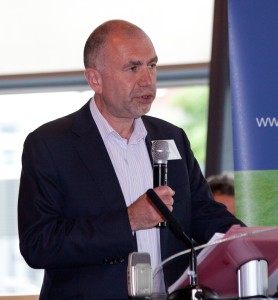 The poor state of men’s health must be one of the biggest health issues routinely not talked about. It is ignored or sidelined by virtually all national governments and by global public health organisations, such as the World Health Organization. It is barely addressed by policymakers, professional organisations, public health non-governmental organisations, researchers, or practitioners.
The poor state of men’s health must be one of the biggest health issues routinely not talked about. It is ignored or sidelined by virtually all national governments and by global public health organisations, such as the World Health Organization. It is barely addressed by policymakers, professional organisations, public health non-governmental organisations, researchers, or practitioners.
Dishearteningly, men’s health problems are sometimes seen as a source of amusement, with men even being described as “idiots.”
Yet the statistics on the state of men’s health could not be much clearer—or grimmer. Globally, male life expectancy, at 69 years, lags five years behind female life expectancy. The gap between the sexes has actually widened since 1970 and will widen further by 2030—by then, male life expectancy is expected to reach 78 and female 85, a difference of seven years.
Suicide rates are much higher in men than women, not least in eastern Europe. Across the world, males have a higher incidence rate in 32 of 35 cancer sites. Out of 67 risk factors and risk factor clusters identified in the Global Burden of Disease study (2010), 60 were responsible for more male than female deaths, and the top 10 risk factors were more common in men.
In 2010, three times as many men as women died as a result of tobacco smoking, and twice as many died because of their alcohol use. Almost one million more men than women died from dietary risk factors, such as low fruit and vegetable intake and eating too much processed meat.
Part of the problem is how men are socialised to behave: in almost all cultures, risk taking is seen as an essential characteristic of masculinity, health is still seen by many men as “a women’s issue,” and men can be reluctant to seek help from healthcare services.
A bigger concern is that health services have not adapted to take account of men’s attitudes and behaviours, even though there is now solid evidence that a “gender sensitive” approach makes a difference. We now know, for example, that sport can be an effective medium for engaging men in lifestyle change programmes, and that many prefer men only weight management interventions.
Professor Sir Michael Marmot, one of the world’s leading authorities on the social determinants of health, has argued that national governments should develop strategies that are responsive to gender and, in a recent report on health inequalities in the UK, he called for a greater policy focus on men’s health to help tackle the fact that deprivation has a bigger negative impact on men’s health outcomes than women’s.
It is time for governments and health organisations in all sectors to heed Professor Marmot’s advice, recognise the problems facing men, and begin to develop strategies for tackling them. I would like to see:
• Global health organisations and national governments address the health and wellbeing needs of men and boys in all relevant policies.
• Men and boys encouraged and supported to take better care of their own health, as well as the health of their partners and children.
• Health practitioners take greater account of the specific needs of men and boys in service delivery, health promotion, and clinical practice.
• Other agencies and organisations, such as schools and workplaces, helped to be more aware of their substantial impact on the health of men and boys.
• Sustained multi-disciplinary research into the health of men and boys.
• An approach to health that fully recognises the needs of both sexes in policy, practice, and funding, and which promotes greater gender equality.
None of this means diluting women’s health programmes or transferring resources from women’s to men’s health. What it does mean is that, by properly acknowledging gender differences, we can take a step closer to achieving better health for all.
Peter Baker is the director, Global Action on Men’s Health. He is an independent consultant on men’s health, and is currently working for the European Men’s Health Forum and HPV Action. Until 2012, he was chief executive of the Men’s Health Forum.
I have read and understood BMJ policy on declaration of interests and declare the following interests: I was chief executive of the Men’s Health Forum charity from 2000-12. Since then I have worked as an independent consultant in men’s health and have received professional fees and/or honoraria for my work from the following: European Men’s Health Forum, British Dental Health Foundation, the Health Service Executive in Ireland, the Throat Cancer Foundation, Age UK, Leeds Beckett University, the HPV and Anal Cancer Foundation, the Royal College of General Practitioners, the Primary Care Urology Society, the National Institute for Health and Care Excellence, Sanofi Pasteur MSD, Prostate Cancer UK, Eli Lilly, Freelance Dieticians, Nicholas Hall and Company, Beating Bowel Cancer, Clement Editions, BBC, and John Wiley and Sons.
